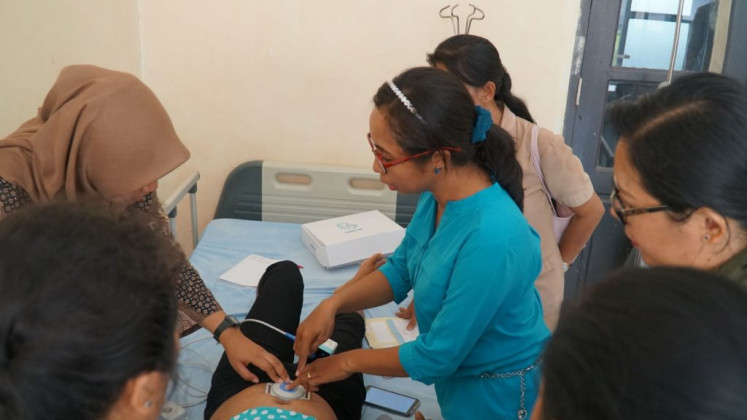Popular Reads
Top Results
Can't find what you're looking for?
View all search resultsPopular Reads
Top Results
Can't find what you're looking for?
View all search resultsFacilitating enterprise expansion with digital infrastructure
Developing Indonesia's digital infrastructure will be pivotal in supporting the proliferation of digital service-led strategies in Southeast Asia.
Change text size
Gift Premium Articles
to Anyone
I
ndonesia, an archipelago of over 17,000 islands, faces challenges and significant opportunities in delivering on-demand digital services to its diverse and widespread population.
The nation has pushed forward with initiatives that will require the support of digital infrastructure, such as the 100 Smart Cities Movement and Golden Indonesia 2045 Vision. These initiatives aim to transform urban areas into smart, sustainable cities and position Indonesia as a leading digital economy by its centennial in 2045.
Achieving these goals will require robust digital infrastructure to support seamless connectivity, data exchange and the integration of advanced technologies across the archipelago.
As a critical node in Southeast Asia, Indonesia’s accelerated adoption of e-commerce and digital banking has been catalyzing a digital evolution across the region’s economic system. Digital payments contribute primarily to the explosive growth of digital trade, with the total transaction value projected to reach US$226.6 billion in 2024, according to the Economic Research Institute for ASEAN and East Asia (ERIA).
This is made evident through a remarkable rise in internet subscribers over the past nine years, surging from 24.6 individuals per 100 in 2012 to an impressive 79.5 individuals per 100 in 2021, according to Statista. Global digital service providers have a unique opportunity to assist businesses looking to tap into this growth with operational expansions in Indonesia and across Southeast Asia.
Data centers are the interconnection backbone of all the modern digital services required in a robust digital economy. Greater access to services and digital infrastructure will be essential to driving economic empowerment across Indonesia, helping enterprises increase the predictability of revenue streams while lowering their operational costs.
Digital wallets and mobile banking services, for example, allow individuals to save, invest and access credit, fostering entrepreneurship and economic growth through the digitally expanded reach of financial services. Small and medium-sized enterprises (SMEs), which constitute 99 percent of businesses in Indonesia, particularly benefit from these services, gaining access to capital and markets that were previously out of reach.



















